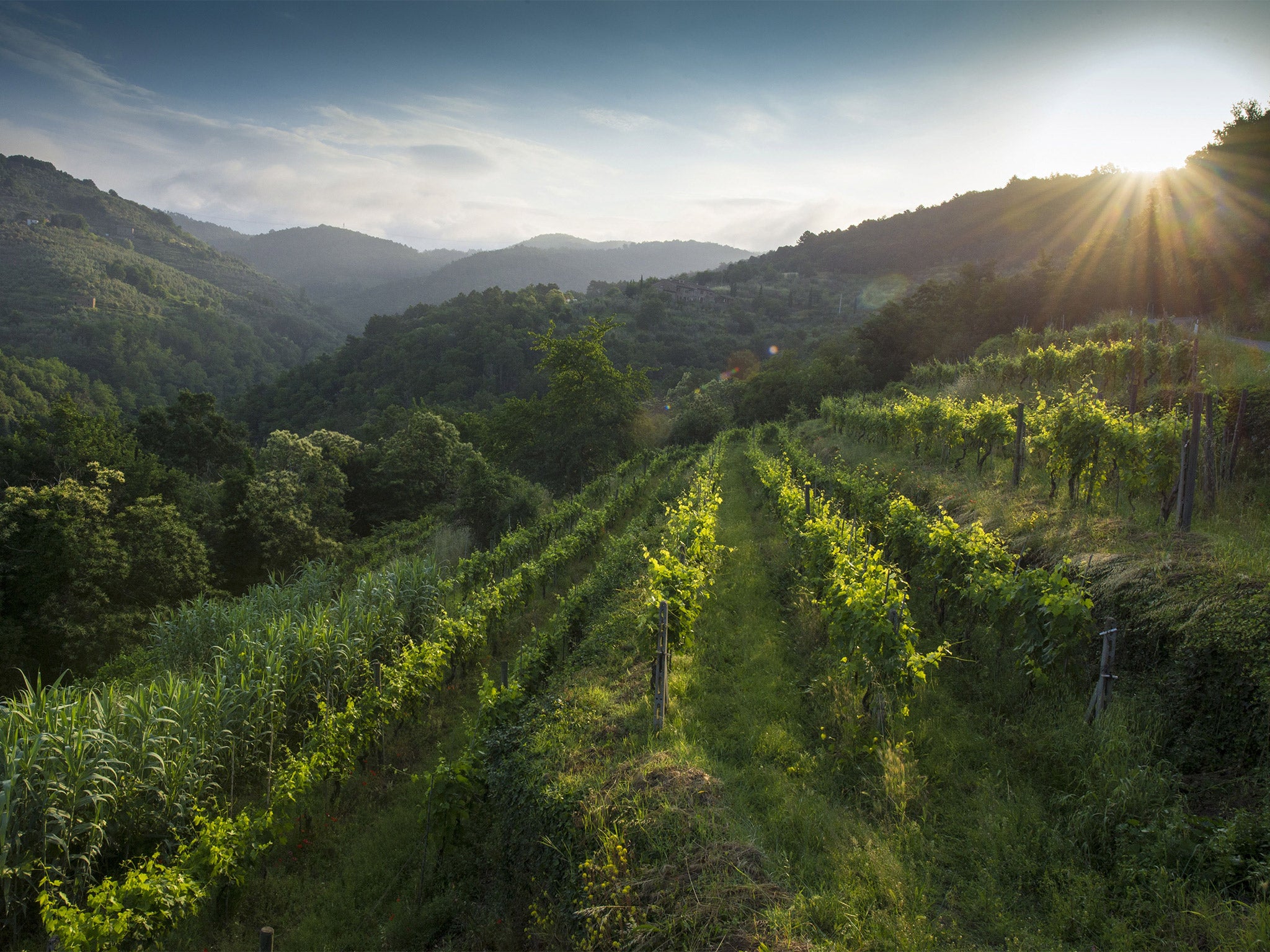Tuscan wine-makers up in arms as authorities attempt to make viniculture more sustainable
Local councils are already enforcing the plan aimed at protecting the water supply and reducing the threat of soil erosion, but growers claim the administration is 'taking agriculture back to the 1800s'

Battle lines have been drawn in the idyllic wine-producing areas of Tuscany as authorities call for stricter regulation of vineyards amid fears that intensive wine production is causing soil erosion and pollution.
The Governor of the Tuscany region, Enrico Rossi, produced new guidelines at the start of July to make viniculture more sustainable and to prevent the production of the area's famous wines, such as Brunello, Chianti and the Super-Tuscans, degrading its picture-postcard countryside.
Stefano Carnicelli, a soil scientist who has advised the region on drafting the plan, highlighted some of the unwelcome effects of the region's wine production. “In Bolgheri the underground water supply is not secure and the intensive use of chemical fertilisers has seen nitrates entering the water,” he told La Repubblica. In Montalcino, the area that produces prized Brunello wines from sangiovese grapes, he said there was a “substantial risk of soil erosion”.
But only now, shortly before this year's grape harvest, have the big vineyards learned of the plans, much to their indignation.
Fabrizio Bindocci, the president of the Consortium of Brunello Di Montalcino Wine, told The Independent that the claims were exaggerated or false and that by failing to consult with them before-hand, there was a feeling among producers that they were “on a war-footing” with the regional government.
“We've only learned about this now. Why weren't we even told it was happening or even consulted?” he said. “This administration wants to take agriculture back to the 1800s. We take regular samples from the rivers and streams near my vineyards in Montalcino and we have not detected pollution.”
Mr Rossi said the region has thus far produced “only recommendations”. But Mr Bindocci said that some local councils in Tuscany were already enforcing the regional viniculture plan and preventing growers from using new vineyards.
The plan also calls on the region's biodiversity to be protected. This received short shrift from the mayor of Montalcino, Silvio Franceschelli. “People come to Montalcino to see vineyards not wheatfields,” he said. Although Mr Bindocci noted that only 3,600 of Montalcino's 24,000 hectares were vineyards, the rest being mainly woodland, fields and olive groves.
Mr Rossi, said he was confident that the region would reach an agreement with the big vineyards. “We only want modern and sustainable wine production, and so I think our objectives are really the same as the producers,” he said.
And Carlo Petrini, the ecological food guru and founder of the Slow Food Movement, backed greater emphasis on a sustainable approach to wine production. “The success of our viniculture should be based on good practice… and because of this there should be planning and development with a sense of limit,” he said.
Subscribe to Independent Premium to bookmark this article
Want to bookmark your favourite articles and stories to read or reference later? Start your Independent Premium subscription today.

Join our commenting forum
Join thought-provoking conversations, follow other Independent readers and see their replies